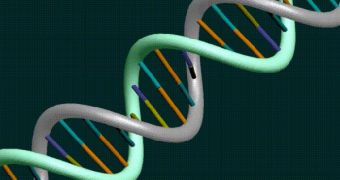Authorities in the United Kingdom will only be allowed to hold the DNA evidence related to persons found to be innocent of the crimes they were charged with, for a maximum period of six years, after which time they will have to destroy the material. The decision applies in England and Wales, the UK Home Office has announced. However, though this is not yet entirely sure, it may be that police departments will be able to retain the DNA evidence of all those suspected for terrorism indefinitely, even if the people in question have not been charged, or have been found innocent.
The country would have gladly retained all DNA samples until the end of time, if it weren't for a decision of the European Court of Human Rights (ECHR), which decided that the UK National DNA Database was an illegal endeavor, and that people's genetic material are not to be kept by their governments. Ministers in the UK say that the law in its new form is the optimum balance between respecting people's privacy, but also allowing police enforcement to effectively fight crime.
The same ECHR ruling was not the same for all of the UK. In the case of Scotland, for example, the Court did not find any reasons to declare the DNA database illegal, as law enforcement agencies in this country deleted the genetic material they possessed on people, after the suspects were either spared of charges, or declared innocent by a court of law. The Northern Ireland database was not concerned by the decision, but it was technically declared illegal, because it handles its DNA evidence in the same way as the ones in England and the UK.
“It is crucial that we do everything we can to protect the public by preventing crime and bringing offenders to justice. The DNA database plays a vital role in helping us do that, providing thousands of crime scene matches every year and helping to put many criminals behind bars where they belong. I believe the proposals represent the most proportionate approach to DNA retention, as well as the most effective way of ensuring the database continues to help us tackle crime,” said Alan Johnson, the UK Home Secretary, quoted by the BBC News.

 14 DAY TRIAL //
14 DAY TRIAL //